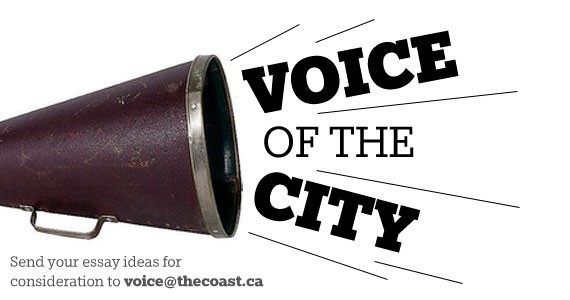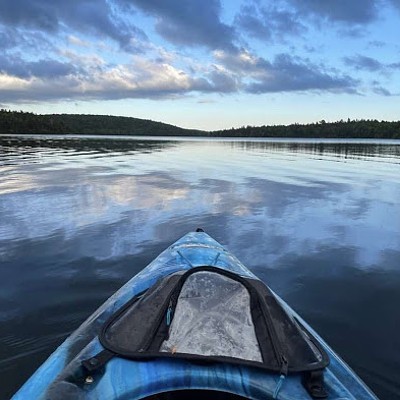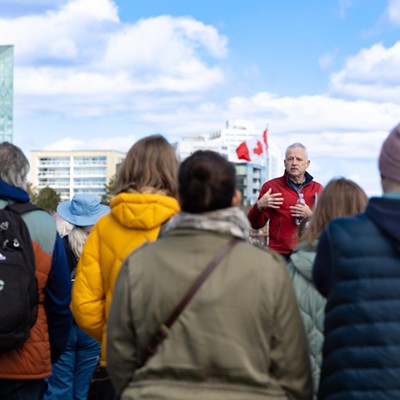When I completed my graduate studies, I moved back to Halifax because I love it here. The city is just so jammed full of interesting people, places and things to do. There's also a level of grit and realness to Halifax that comes from being an old port city with a deep culture and style all its own. Perhaps it's also the blend of the old and the new, or the universities that bring in fresh, creative minds.
After living away for a few years and coming home, I also realized that some of the stuff I see here as normal
almost every day is not so normal in other places. I like that. It's a big part of why I moved home.
But there's another reason too. I love to spend time outdoors, in the wilderness, paddling on lakes and hiking in the deep woods. And Halifax has plenty of wilderness close by.
I'm not talking about Point Pleasant or Shubie Parks, which are fantastic urban parks. I'm talking about the bigger wilderness areas, just on the edge of the city. In Canada, there's a lot of wilderness. But, in Halifax it's so close you can reach it by public transit.
One of my favourite places is Birch Cove Lakes. This amazing wilderness contains over a dozen undeveloped lakes, vast tracts of forest, clean rivers and streams, and plenty of wildlife, including over 150 species of birds. And, it's only 10 kilometres from downtown Halifax, and actually within the boundaries of the old city limits of Halifax. That's pretty amazing.
Here, you can go for a cool swim in the summer, or a long paddle in the fall or cross-country ski on the lakes in winter. It's the best of both worlds. In Halifax, we have the urban city with all its flair but also the near-urban wilderness.
The wilderness still exists on the edge of the city, not by design or by sound urban planning, but because a lot of that land is pretty rugged so hasn't been developed, and more importantly because it is largely in public ownership, so belongs to all of us.
And, it's been the provincial government, not the city, that's been listening to residents of HRM and steadily making progress toward protecting these wilderness lands. Places like Blue Mountain and Five Bridge Lakes have been protected by the province in recent years and will remain forever wild.
The city, meanwhile, has done practically nothing to protect our wilderness doorstep. Oh, city officials say all the right things about controlling sprawl and creating parks, and have lots of great maps and functional plans. But turning those plans and good intentions into action is a real problem in this city.
The Birch Cove Lakes, for instance, is flagged as a future regional park in the HRM regional plan. That plan was approved by city council in 2006. Great! However, it's been six years and not a single hectare of land has been acquired for the Birch Cove Lakes park. Not so great.
There's been plenty of money spent on nearby things like the Larry Uteck Interchange and the Washmill Underpass, but nothing for the Birch Cove Lakes regional park. And that's a real shame.
Because, each year, as I did, all sorts of young people take a deep breath---students who have come here from away, or Haligonians who are away and thinking about coming home---and then decide just what they should do next and where they should go.
And, for Halifax, if we want to be in the running when those key decisions are being made by young creative people, we must hold onto the things that make this city great: The interesting people, places and things to do. It also means protecting places like the Birch Cove Lakes and not letting suburban sprawl spill out onto the landscape and hollow out the centre.
The Birch Cove Lakes will be an important litmus test for the new city council and mayor, to see if they can respond effectively, and in real ways, to citizen calls to make this city more livable. Let's hope they're listening.
Chris Miller is the national conservation biologist for the Canadian Parks and Wilderness Society. He works to create new protected areas across Canada and enjoys nothing more than spending time in Nova Scotia’s wilderness. You can follow him @NSwilderness.
Send your essay ideas for consideration to [email protected]

















